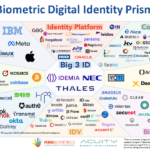Nigeria is preparing to conduct its first biometric census in 2025, addressing a nearly two-decade gap in accurate population data. The National Population Commission (NPC) has proposed a budget of ₦18.2 billion for the initiative, with additional funding of N1.1 billion specifically allocated for the National Population and Housing Census. This digital census represents a significant advancement from the country’s last count in 2006, which relied on manual methods and faced accusations of inaccuracy.
The initiative builds upon Nigeria’s expanding digital identity infrastructure, including the World Bank-supported ID4D project, which aims to issue 180 million National Identification Numbers (NINs) by 2026. The biometric census will integrate with existing national identity management systems, leveraging technology already deployed by the National Identity Management Commission (NIMC).
During a recent budget defense session, members of the Nigerian Senate emphasized the critical need for accurate demographic data. Senator Abdul Ningi characterized the current lack of reliable census data as a “national disgrace,” while other senators, including Diket Plang and Deputy Minority Leader Olalere Oyewumi, expressed concerns about the country’s reliance on foreign-sourced population estimates.
NPC Chairman Hon. Nasir Isa Kwarra outlined plans to implement the biometric census with President Bola Tinubu’s support. The chairman detailed how biometric systems will ensure accurate human counting, distinguishing between human populations and livestock. The proposed budget includes significant allocations for capital projects to support the biometric infrastructure, which will complement the country’s existing national ID program that aims to support a database of 250 million identities.
The Senate has approved the NPC’s budget proposal, recognizing the census as fundamental to governance, economic strategy, and equitable resource distribution. The biometric approach represents a technological upgrade from traditional census methods, incorporating digital identification and verification systems to enhance accuracy and prevent duplicate entries. This aligns with Nigeria’s broader digital transformation initiatives, including the recent launch of a digital biometric registry for farmers and the expansion of biometric verification in the banking sector.
The implementation plan focuses on transparency and reliability through biometric verification, leveraging multiple biometric modalities including fingerprints and potentially iris recognition, which the NIMC is currently evaluating for broader national ID applications. This technological approach aims to establish a foundation for data-driven governance and planning, replacing the current system of population estimates with verified demographic data that can support more effective resource allocation and policy development.
Sources: The Guardian, BusinessDay
–
January 22, 2025 – by the ID Tech Editorial Team







Follow Us